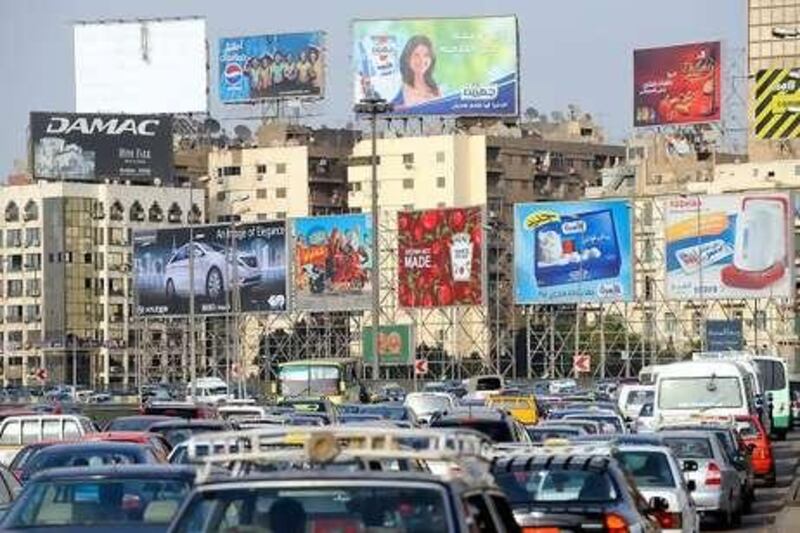Egypt's advertising industry has overtaken the UAE's as spending in the North African nation increased by 36 per cent in the first half of this year, the Pan Arab Research Centre (PARC) reports. Egypt is the most populous country in the Middle East and Africa, after Nigeria and Ethiopia. Advertising and media executives point to Egypt's 80 million people as one of the most promising markets in the region.
Ironically, it was a campaign promoting family planning that helped boost Egypt's ad spending to US$708 million (Dh2.6 billion) in the first six months of this year, exceeding the US$680m spent on advertising in the UAE. The Egyptian government-sponsored TV campaign Waqfa Masreya- or "Egyptian stand" - had a rate-card value of $73.9m, more than 10 per cent of the country's total outlay, according to PARC's figures. Part of the public awareness drive encourages couples to limit their family to two children.
The PARC figures are based on the cost of advertisements according to the published rate-card prices and do not reflect discounts and bulk deals offered to advertisers. Elie Jichi, the operations and production manager at PARC, acknowledges the Egyptian government may have received free time or discounts from TV stations. But advertising executives confirm that government spending is behind the boom in Egypt's advertising sector.
"We see Egypt as a growing market and a very important market. It's one of the fastest-growing advertising markets in the world. I think it's sustainable and will keep growing, but maybe not at the same pace. The biggest growth is coming from government spending, on trying to stimulate the economy through housing programmes and tourism," said Reg Lascaris, the president of the advertising group TBWA in the Africa, Middle East and Mediterranean region.
TBWA has boosted its presence in Egypt as its Cairo office has a staff of 105 people, up from 70 last year, he said. Media owners agree Egypt's market has room for growth. "Domestic advertising will naturally increase because of the size of the population and as people have more disposable income," said Nick Mesquita, the Economist Group's sales director for the Middle East and Africa. Egypt and Lebanon were "less affected by the global financial crisis than other markets", and the relative lack of personal debt in those two countries means that people there "have a greater propensity to spend", he added.
"For companies like Pepsi and Coke and the [makers of fast moving consumer goods], [Egypt] is a place where they say 'it's not a mature market, I see 10 to 20 per cent growth here'," he added. PARC's figures track domestic spending on advertising. But international publishers say the Egyptian government's drive to attract more foreign investment could prompt more business for their publications. The Economist magazine, which sells advertising in Egypt through a local agent, has seen an upturn in revenues, Mr Mesquita said.
"For international advertisers, I think it will pick up, because Egypt will be looking for foreign direct investment," he said, pointing to the developing tourism and manufacturing industries in the country and the need for better infrastructure to support it. "Tourism is probably one very large sector of interest … And they'll want the Nokias of this world to move in and set up factories." Mr Jichi confirmed that ad spending in Egypt had overtaken that of the UAE "for the first time". But he doubts the rapid growth will continue in the current half.
The Egyptian market is likely to grow by between 1 per cent and 2 per cent per month, with the usual hike in TV spending over Ramadan, for the rest of this year, said Mr Jichi. bflanagan@thenational.ae





